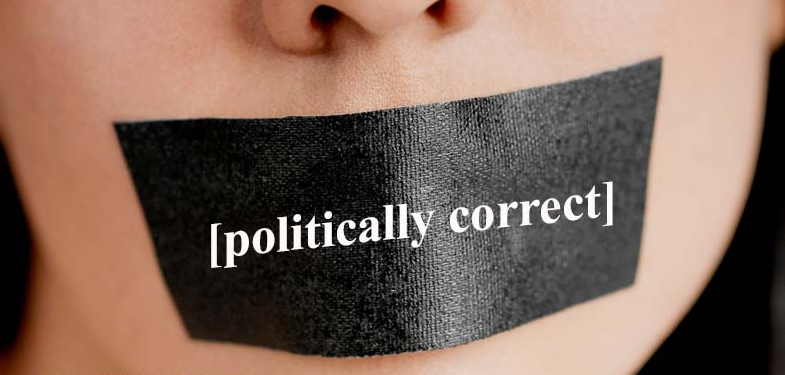‘Politically Correct’: The Phrase Has Gone From Wisdom To Weapon

*I’ve been thinking about this a lot since the start of the presidential election. And yes, the term “politically correct” has been weaponized and diverts important issues to banal arguments. VL
By Kat Chow, Code Switch NPR (9.5 minute read) ![]()
Rewind to August 2015: Then-candidate Donald Trump is on stage in Cleveland at the first Republican presidential debate.
“I think the big problem this country has is being politically correct,” Trump tells the moderator, Fox News’ Megyn Kelly. “I’ve been challenged by so many people and I don’t, frankly, have time for total political correctness. And to be honest with you, this country doesn’t have time, either.”
Now president-elect, Trump has denounced “political correctness” many, many, times since his campaign began. At a rally a year ago in South Carolina, he called for a “total and complete shutdown of Muslims entering the United States.” He told a cheering crowd that his statement on the subject was “very, very salient, very important and probably not politically correct.”
Read more stories like this in NewsTaco. >>
Politically correct. Political correctness. Using the biggest bully pulpit there is, Trump has wielded the phrase and its variants like a club some days and a shield on others. And he’s hardly alone.
Since as far back as 1793, when the term appeared in a U.S. Supreme Court decision about the boundaries of federal jurisdiction, “politically correct” has had an array of definitions. It has been used to describe what is politically wise, and it has been employed as ironic self-mockery. The phrase has driven contentious debates in which free speech and free choice are pitted against civility and inclusion. But it hasn’t just changed meaning, it has changed targets. What the November election has made clear is that these words, especially when they’re related to matters of multiculturalism and diversity, carry consequences.

